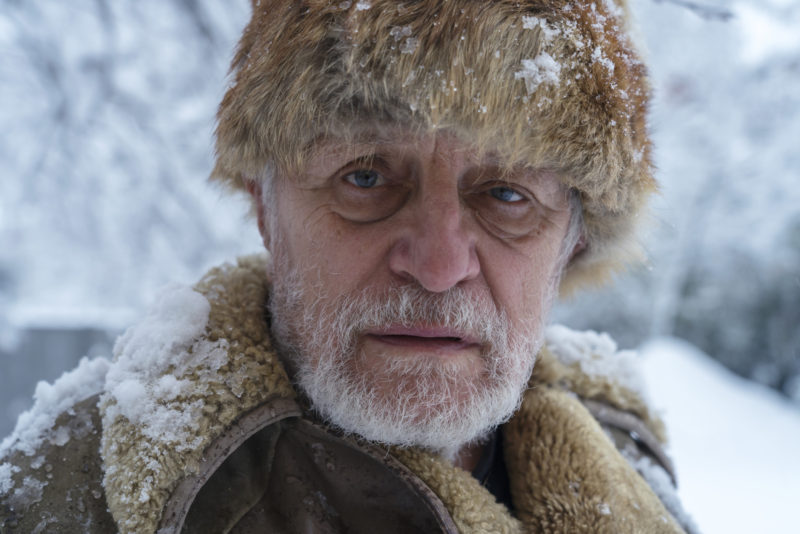Cold weather can be particularly dangerous for senior adults with memory loss or dementia, with preventing hypothermia as a major concern.
Whether they have dementia or not, senior adults are more susceptible to hypothermia, which is the condition of having an abnormally low body temperature. Slower metabolism in seniors means the body becomes less efficient at generating heat and therefore maintaining a normal body temperature. Another challenge—the body’s response to the cold can be diminished by certain diseases like diabetes and by some medications. Also, seniors tend to be less active and thus generate less body heat.
What are the signs and symptoms of hypothermia?
The following are early signs:
- Cold hands and feet
- Puffy or swollen face
- Pale skin
- Shivering (in some cases this does not occur)
- Slower than normal speech or slurring words
- Acting sleepy
- Being angry or confused
The following are later signs:
- Moving slowly, trouble walking, or being clumsy
- Stiff and jerky arm or leg movements
- Slow heartbeat
- Slow, shallow breathing
- Blacking out or losing consciousness
Call 9-1-1 immediately if you think someone has the warning signs of hypothermia.
Winter Confusion and Hazards
Those living with dementia may not recognize visual cues that indicate to most people that it is cold, like seeing snow outside. Another symptom of dementia—the inability to dress appropriately due to being overwhelmed by the decisions of what to wear—may leave them inadequately protected from colder temperatures.
And according to the Alzheimer’s Association, people with dementia have difficulty verbally communicating that they feel cold or even in recognizing they are cold.
Less daylight and colder temperatures may enhance the early-to-mid stage experience of sundowning for people with dementia. Sundowning is a period of increased confusion, anxiety, and agitation that starts at dusk and continues throughout the night, causing problems with sleep.
The decreased sunlight causes increased anxiety, confusion and depression during the winter. During the day, curtains in the senior’s home should be open to admit as much light as possible. If they do not object, it may be a good idea place your loved one’s favorite chair next to a window to increase their exposure to natural light.
A study found that older adults exhibit “changes in cognitive function that may be associated with the time of the year, declining significantly in winter and early spring. This applies to seniors who are living with dementia and those who are not.
Wandering is common for people with dementia as they become confused about their location. Six in 10 people living with dementia will wander at least once, and many do so repeatedly. This is dangerous at any time of the year, but during cold weather it is even more hazardous. It may be advisable that your loved one wears an ID bracelet or possibly even a GPS tracking device.
Staying warm also can present a danger for people with dementia. Space heaters placed close to furniture or in walking paths could ignite a fire or pose a tripping hazard. Electric blankets, particularly those that don’t switch off automatically, pose a risk. The Cleveland Clinic recommends that no one with dementia should operate a space heater or use an electric blanket unsupervised.
Other Safety Tips
Prior to the winter season, the senior’s home heating system should be checked to ensure its efficient and safe operation. It may also pay to have someone inspect and replace weather stripping around windows and doors.
The thermostat in the home should be set between 68 and 70 degrees, Make sure that you or someone who lives nearby checks to make that your loved one is not changing the thermostat setting. The idea is to keep the house safely warm but not too warm, as excessive heat can lead to dehydration.
The senior should be encouraged to move every hour to increase his or her circulation, even if it is just moving his or her legs and arms while seated.
Finally, people with dementia may neglect their health and nutritional needs. Therefore, it is important to make sure they are regularly eating nutritious meals and drinking plenty of fluids to sustain them during the winter months.
If you are caring for a senior with dementia, visit our blog for more helpful tips.
| Bethesda has a 133-year tradition of providing excellent senior living options, including independent living, assisted living, memory care, and skilled nursing. If you are considering memory care, we welcome you to tour one of our exceptional communities, including Bethesda Dilworth, Bethesda Southgate, and Bethesda Hawthorne Place. Discover the level of care that only a non-profit staffed by highly-trained nurses, therapists, and aids can offer. |



